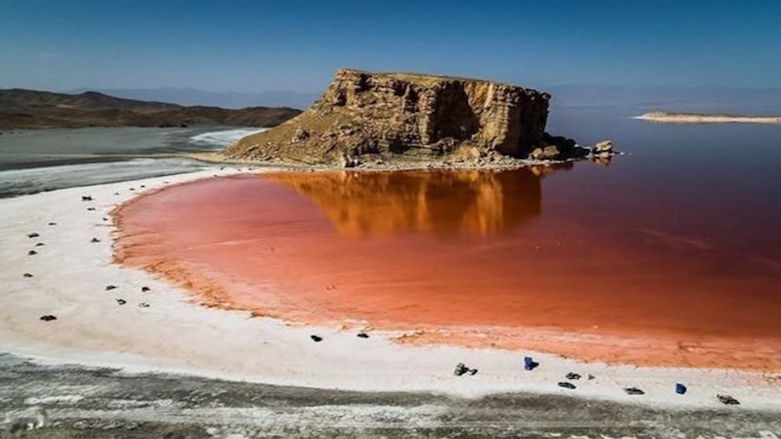Kurds in Iran face state-sponsored discriminations: Rights group

ERBIL, Kurdistan Region (Kurdistan 24) - A human rights organization reported that in the first ten months of 2017, Iran has killed and imprisoned a disproportionate number of Kurds.
The Association for Human Rights in Kurdistan of Iran - Geneva (KMMK-G) said Iran has so far executed at least 64 Kurdish prisoners, killed 57 kulbar (border couriers) and injured 120. Also, 7 Kurds lost their lives to landmine explosions, remnants of 1980 war with Iraq.
Iranian Kurdistan like other minorities such as Turkmens, Ahwazis, and Baluchis suffer high levels of unemployment and discriminatory policies, KMMK-G reported.
Despite the diversity of ethnic constituents of Iran, only the Persian-Shiite group holds ultimate state power, and Article 1 of the Constitution of the Islamic Republic of Iran declares the Twelver Shi’a School of Islam as the formal religion of the state.
According to the UN Committee on Economic, Social and Cultural Rights, the Iranian 1995 Selection Law based on Religious and Ethical Standards known as the “gozinesh “ impairs the equality of opportunity or treatment in employment for persons belonging to ethnic and religious minorities.
EXECUTIONS
The rights organization claims that despite secrecy surrounding executions, and the government’s refusal to publish the names and the ethnicity or whereabouts of the executed prisoners, KMMK-G has been able to identify the names of at least some of those executed.
According to KMMK-G’s collected data, at least 64 Kurdish prisoners were executed in the first half of this year.
"About 50% of these prisoners were executed for drug-related crimes, about 30% for murder and others for membership in Kurdish opposition parties and other such allegations," the report said.
Morteza Rahmani, a Kurdish political prisoner, and Seyed Jamal Mousavi, charged with religious (Sunni) and belief-related allegations, were executed.
KMMK-G says, the majority of these executions take place after unfair trials and for crimes that do not constitute the “most serious crimes” under international law.
"In this context, drug-related offenses and the execution of individuals on vaguely worded offenses, such as moharebeh or “enmity against God” are examples of insufficient and unfair forms of crime formulation," Taimoor Eliassi, founder of the organization told Kurdistan 24.
The Kurdish prisoners face unfair trials and are often convicted in proceedings marked by a pattern of alleged abuses including the use of confessions driven under torture and denial of access to a lawyer, he added.
Proportional to the population of Iran, the number of Kurdish executions is dramatically high. Likely in order to deter any collective resistance, the Islamic Republic executed more than one-fifth of the Kurdish prisoners outside Kurdish region in provinces like Qazween, Hamedan and Rasht, he added.
POLITICAL PRISONERS
Similar to previous years, the share of Kurdish political imprisonment remains dramatically high in 2017.
According to the Report of the Special Rapporteur on the Situation of Human Rights in the Islamic Republic of Iran published on March 17, 2017, Kurdish political prisoners represent almost half of the total number of political prisoners in the country.
"Thus far in 2017, at least 1828 Kurdish citizens have been detained for a variety of reasons, and often in groups, for environmental rights advocacy, eating while supposed to be fasting during the month of Ramadan, working as border couriers, cheering for the Kurdish referendum in neighboring Kurdistan of Iraq held in September 2017, and other such charges," KMMK-G reported.
Without adherence to fundamental principles such as due process and fair trial, 114 of these detainees were charged with alleged “political and security”-related crimes, facing sentenced such as long years of imprisonment, lashes and heavy financial penalty, the report added.
INDISCRIMINATE KILLING OF KULBARAN
Due to high rates of unemployment, and land contamination caused by landmines and explosive remnants of the Iran-Iraq war that hamper seriously the daily life of civilians particularly the farmers, the nomads, the shepherds and traders, the Kurdish youth and farmers from four Kurdish provinces of Kermanshah, Kurdistan, Ilam and Wermê (West Azerbaijan) engage in smuggling commodities, such as tea, tobacco and fuel to earn a living.
Even though the current Islamic Republic administration pledged to change its security approach toward Iranian Kurdistan, the indiscriminate killings of Kurdish Kulbaran (border couriers) has remained high in 2017.
The indiscriminate and blind killing of Kurdish Kulbaran takes place in blatant violation of Iran’s domestic laws and international obligations.
"Border security forces involved in indiscriminate and blind killings do not respect Iranian domestic laws, which authorize the use of lethal force only as a last resort," the group said.
LANDMINE CASUALTIES
Various international bodies and entities such as the Working Group on the Universal Periodic Review (UPR) on Iran (2010) and the Committee on the Rights of the Child (January 2016) have urged the Islamic Republic to clear its territory of landmines and all the remnants of the Iran-Iraq war (1980-1988).
Nevertheless, despite international and domestic efforts, the Islamic Republic refuses to cooperate with international NGOs and entities and to ratify the Ottawa Mine Ban Treaty.
According to KMMK-G’s data, thus far in this year, 7 Kurdish civilians were killed and 25 were wounded due to landmines expositions.
A Kurdish child of 14 was among the injured this year.
Iran said that during to eight years-long Iran-Iraq war (1980-1988), more than 20 million landmines were planted in Kurdistan and Khuzestan provinces that seriously hamper the daily life of civilians particularly the farmers, the nomads, the shepherds, and couriers.
KMMK-G was established in 2006 "strives to serve as a bridge between the Kurdish and Iranian civil society on the one hand and the United Nations agencies and International institutions on the other."
